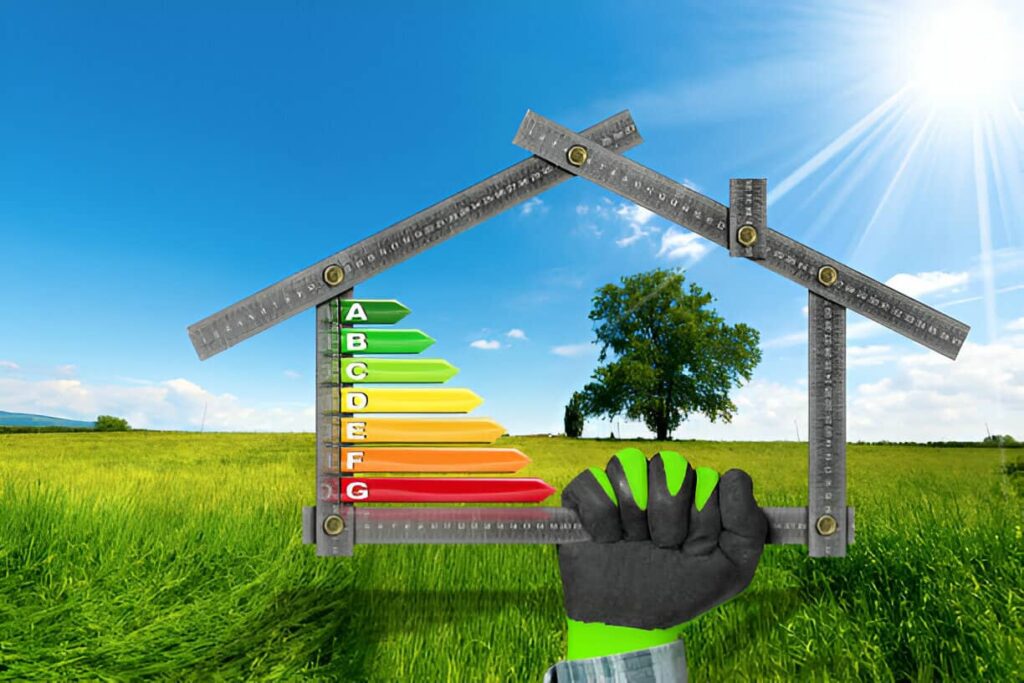Energy efficiency is more than just a buzzword; it’s a necessity for modern homeowners. As we become increasingly conscious of our environmental impact and energy bills, the importance of creating an energy-efficient home cannot be understated. One of the most effective ways to enhance your home’s energy efficiency is through proper insulation.
In this article, we will delve into how effective insulation can reduce your energy bills and make a significant positive impact on the environment.
Understanding Insulation
What Is Insulation and How Does It Work?
Insulation is a material that slows down the transfer of heat, keeping your home warm in the winter and cool in the summer. By reducing the exchange of heat through walls, roofs, and floors, insulation maintains a consistent indoor temperature, minimizing the need for heating and cooling systems to work overtime.
Types of Insulation
Several types of insulation are available for homes, each with its unique properties and benefits:
- Fiberglass Insulation: Made from fine glass fibers and available in batts, rolls, and loose-fill forms. It’s one of the most common types of insulation used in homes today.
- Cellulose Insulation: Composed of recycled paper products and treated with fire retardants. Cellulose is an eco-friendly option that provides excellent thermal performance.
- Foam Insulation: Includes spray foam and rigid foam boards. Spray foam expands to fill gaps and cracks, offering superior air-sealing capabilities.
- Reflective or Radiant Barrier Insulation: Typically installed in attics to reduce cooling costs by reflecting heat away from the home.
How Insulation Affects Energy Efficiency
Reducing Heating and Cooling Needs
Effective insulation significantly reduces the need for heating and cooling by creating a thermal barrier. This barrier slows down the heat transfer process, keeping warm air inside during the winter and preventing hot air from entering during the summer. As a result, your HVAC system doesn’t have to work as hard, leading to substantial energy savings.
Potential Energy Savings
Numerous studies and statistics highlight the importance of proper insulation in achieving energy efficiency. According to the EPA, homeowners can save up to 15% on heating and cooling costs by properly insulating their homes. This equates to an average of 11% savings on total energy bills.
Signs Your Home Needs Better Insulation
How do you know if your home could benefit from better insulation? Here are some common signs:
- High Energy Bills: An unexplained spike in energy bills can indicate poor insulation.
- Drafty Rooms: Feeling drafts or cold spots in certain areas of your home suggests that your insulation may not be sufficient.
- Uneven Temperatures: Rooms that are consistently warmer or cooler than others indicate an insulation problem.
- Ice Dams: This is a condition where ice forms on your roof, causing water damage. It occurs because of inadequate attic insulation and ventilation.
Insulation Installation and Best Practices
The Insulation Installation Process
Installing insulation can be a DIY project, but it often requires professional expertise, especially for larger homes or more complex projects. Here’s a brief overview of the installation process:
- Assessment: Evaluate the current insulation and identify areas in need of improvement.
- Selection: Choose the appropriate type of insulation based on your home’s needs and budget.
- Preparation: Ensure the area is clean and free of debris.
- Installation: Install the insulation according to manufacturer guidelines and building codes.
- Sealing: Seal any gaps or cracks to maximize efficiency.
Best Practices for Maximum Efficiency
- Proper Ventilation: Ensure your attic has adequate ventilation to prevent moisture buildup.
- Sealing Gaps: Use caulk or weather stripping to seal any gaps or cracks around doors, windows, and other openings.
- Safety Measures: Wear protective clothing, gloves, and masks when handling insulation materials.
The Importance of Professional Insulation Services
Benefits of Hiring Professionals
While DIY insulation installation is possible, hiring professionals offers several advantages:
- Expertise: Professionals have extensive knowledge and experience in insulation installation.
- Quality Assurance: Professional services ensure the job is done correctly, maximizing efficiency and durability.
- Warranty: Many professional services offer warranties on their work, providing peace of mind.
Tips for Choosing the Right Insulation Contractor
- Research: Look for contractors with positive reviews and a strong reputation.
- Get Quotes: Obtain multiple quotes to compare prices and services.
- Check Credentials: Ensure the contractor is licensed, insured, and certified.
- Ask Questions: Inquire about their experience, materials used, and guarantees offered.
For homeowners in Provo, many reputable insulation services can help you achieve your energy-efficiency goals. For sure, you can find local experts who can provide personalized solutions for your home.
Future of Insulation and Sustainable Options
Advancements in Insulation Technology
The insulation industry is continuously evolving, with advancements in materials and techniques that offer improved performance and sustainability:
- Aerogel Insulation: Known for its exceptional thermal resistance, aerogel is becoming more affordable and accessible.
- Recycled Materials: Insulation made from recycled glass, denim, and other materials offers eco-friendly alternatives.
Making Eco-Friendly Choices
Homeowners can make sustainable choices by:
- Selecting Green Materials: Opt for insulation made from renewable or recycled materials.
- Ensuring Proper Disposal: Dispose of old insulation materials responsibly to minimize environmental impact.
- Considering Lifespan: Choose durable insulation that will last longer, reducing the need for frequent replacements.
Conclusion
Effective insulation is a critical component of a truly energy-efficient home. By understanding how insulation works, recognizing signs of poor insulation, and following best practices for installation and maintenance, homeowners can enjoy substantial energy savings and a more comfortable living environment.



